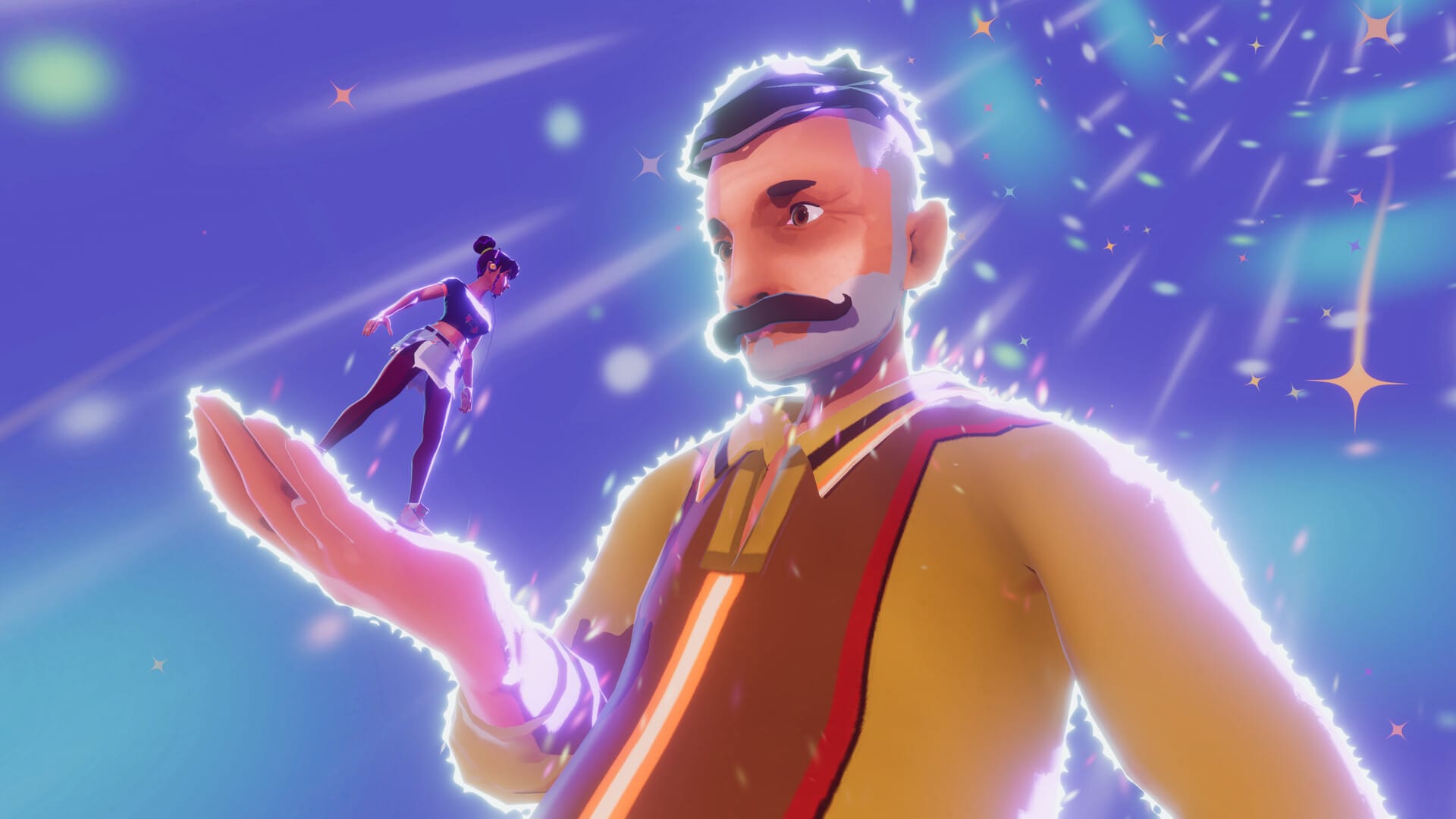Thirsty Suitors Shows How Diaspora Romance Culture Puts Queer Asians on the Spot
A timely game for Pride Month

Thirsty Suitors is a unique, story rich game that features love, battles, and Asian family drama (and not the kind of drama that would end up in a soap, but the mundane ones that haunt a queer South Asian).
Player character Jala is flawed, funny, and relatable. She has to skateboard through her hometown and battle her exes, even if they're cool. With a month to go before her sister's wedding, Jala has to make amends, and find out if she's invited. That isn't a lot of time for reconciliation!
I've been looking forward to the full release of Thirsty Suitors for a while since playing the demo two years ago. You can find my thoughts here in a compilation of Superjump's October 2022 Steam Demo fest recommendations. A friend was kind enough to gift it to me, and I finally got a chance to play it this June for Pride month.
What I love is that this game understands how hard it is to be queer and Asian in a diaspora world. Some family members refuse to comprehend the meaning of the word "bisexual". While Jala's parents are more understanding, with her dad providing unconditional love and support with bad puns, her grandmother has questions about why Jala is not happily settled down with someone. Namely, settled with an Indian guy who has a job and a career. For Jala to assert she doesn't just want to settle, she has to fight. Literally!
Beyond the diner scene in the demo
The Thirsty Suitors demo starts with a bus ride and tutorial. We also start there in the proper game. After a messy breakup, Jala is homeless, and without anything but a skateboard and her backpack. She scrounges up her pocket money to take the bus home to Timber Hills. A chance run-in with an ex may provide her a ride home, or an awkward battle as she and her opponent fight, flirt, and flex. The flexing is literal since Sergio has been working out since their elementary school days.

Turns out that Jala has gotten around a lot, with enough exes to rival the ones that Ramona Flowers had in Scott Pilgrim. Some are not interested after she broke their hearts, while others seek revenge. A few, like Sergio, consider getting closure. Either way, it seems Jala will have to fight them with the power of thirsty or angry taunts.
So that's where the demo ended. But then the story really begins when Jala finds out over an awkward breakfast with her parents that her big sister Aruni is getting married. Their grandmother is coming for the wedding and has been sending suitors after Jala to court her. All Indian guys, of course, who have jobs and respectable backgrounds. Jala loves Patti but isn't ready for any sort of romance after her breakup. Heck, she doesn't even know if she's back in Timber Hills to make amends with the family she left behind or improvise a way forward. Talking to Aruni is a high priority, but so is avoiding all the Indian suitors. They appear in gift boxes around town last that I checked.
I'm so relieved that the game gives settings for adjusting the battle difficulty. The battles in the demo were difficult, especially for someone like me who is not coordinated in a 3D pixel world. I'm already having trouble managing Jala on her skateboard since it's easy to nearly run over people or crash into railings. Still, you get some time to practice and determine Jala's Thirstsona based on the points she earns from battles.
Caught between expectations and tradition
This game totally renders what it's like to be adult, South Asian, and queer. Specifically, when you are out of the closet and your family remains in denial. If you're a cis woman and Indian-Asian, you have to fit the mold that before you turn 35, you need to get married to an Indian guy. Sure, you may be able to avoid it if your sisters end up with non-Indian men and scandalize mothers with a divorce, but awkward questions will arise. And those who marry non-Indian guys will always face their parents' remorse about it.
Elephants in the room exist in the game. Jala's parents don't want to talk about the fact that she cut them off for three years following a nasty fight with her mother and moving in with a woman named Jennifer. Her mother instead expresses disappointment about how she didn't bother calling while her dad suggests activities to mend bonds with Aruni and other family members. Jala doesn't want to talk about why Jennifer kicked her out and didn't even let her pack clothes. She can admit that her mother was right about Jennifer, but that's about it. Time will tell if these people will open up about what really happened, without dramatic meltdowns.

On the surface, Jala meets some of her parents' expectations. She's skinny owing to her constant skateboarding and wears clothes that some consider fashionable. In addition, she's been independent for a while and doesn't have chronic health conditions. When you hear meltdowns and needling remarks about any of these things, it sets the tone for impossible standards to meet.
In private, however, Jala's mother expresses some of the traditional views and disappointments that can hit any queer Indian adult. Her younger daughter doesn't have a high-power job that earns a lot of money or any sense of direction in life. Not to mention she's single, and her choice of romantic partners has been questionable at best. Jala has no future right now, and her past is sordid by conservative Indian standards. These small jabs hit close to home, even with her dad playing good cop. Jala internalizes all these criticisms and repeats them on loop, another thing that hits very close to home.
Then there's Aruni. The older responsible sister, who has found a decent guy, moved out but stayed within walking distance, and apparently has no issues. Jala wants to mend her bond with her older sister but doesn't know how, since they ghosted each other. She may not even have a wedding invitation! Conversation has to happen, along with answers. But Aruni also represents everything Jala isn't: the model daughter for South Asian parents. Jala implies that's why the two haven't spoken in months but someone has to break the ice.

Skating to a new life
It will be interesting to see where the rest of the story will go. Jala is by no means perfect, but she is relatable to the Gen Y South Asian in the West. Her story is bound to have as many twists and turns as her skateboard routes.
I also can't wait to see how the game will address this awkward status that Jala has as a South Asian disaster bisexual. She will have to assert herself to her grandmother and figure out a way forward after a breakup.